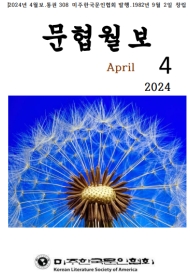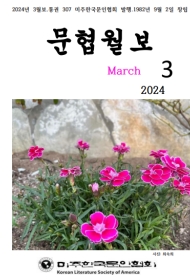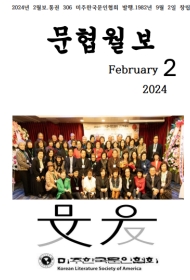The Ones Who Walk Away from Omelas
===================================
Wolran Kim
December 2012
Ursula Kroeber Le Guin (1929~) is an American author of novels, children's books, and short stories, mainly in the genres of fantasy and science fiction. She has also written poetry and essays, and her work has often depicted futuristic or imaginary worlds alternative to our own in politics, natural environment, gender, religion, sexuality, and ethnography. Le Guin's writing notably employs the ordinary actions and transactions of everyday life, clarifying how these daily activities embed individuals in relation to the physical world and to one another. Le Guin received her B.A. from Radcliffe College and M.A. from Columbia University. She later studied in France and received wide recognition for her novel The Left Hand of Darkness, which won the Hugo and Nebula awards in 1970.
Her father was a prominent anthropologist who was dedicated in his research to the Native North American tribes, and her mother was a children’s literary woman, famous from her work The Last Indian. Le Guin is the first writer who is pointed out if the Nobel Prize winner comes from SF literature. She is still vigorously writing. Her Earthsea series is one of the three masterpieces of fantasy literature along with Chronicles of Narnia by C.S. Lewis and The Lord of the Rings by JR.R.Tolkien. Her masterpieces are The Left Hand of Darkness and The Dispossessed. She said that she never deals with superheroes in her fantasies. If a wizard appeared, he is drawn as an ordinary person who suffers hardships too. She hopes that her fantasy works are practical because she thinks reality itself is already a fantasy.
People leave Omelas. Why? This title makes us wonder what makes people leave that place. The name, Omelas, came from her reading a road sign, Salem, O, and putting it backwards. There is always a legitimate reason for people leaving any place, because leaving is not an easy issue in the livelihoods of people. This is fantasy, however, as she said, and is also satirical reality. Le Guin has often used otherworldly perspectives to explore political and cultural themes. She also has written fiction set much closer to home. Many of her short stories are set in our world in the present or near future. She manipulates the real and the ideal, mixing them with a compromise of hope and despair. The people who leave Omelas to find utopia may be the people who own death. According to the author’s intentions, we might look back to the contradictions of the reality of society and human frailty such as The ones who walk away from Omelas.
This short story received the Hugo Award in 1973, and The Wind’s Twelve Quarters, a collection of short stories, was published in 1975. Le Guin is influenced by anthropology, psychology, and Taoism. Her works seem to be a sort of thought experiment that digs into the mindset and culture of the people who live in different environments, rather than simply dealing with the universe as an alien. The 1970s were very complex in the world, initiated by global revolution and student movement. The crisis of the 1970s was caused by the Vietnam War and more than 4 million college and high school students and faculty members. Spreading the Eros effect, soldiers refused to fight, the black liberation movement had been strengthened, worker strikes continued, the women’s liberation movement became stronger, and middle-class people began to move. Social issues and non-economic issues such as race, gender, war, women, education, and labor issues were globally visualized over economic issues. This story is not only fantasy but also a realistic story which can be inferred as a modern social satire about human coping strategies for evils, and that is still applicable to these days.
There are no limits as far as the audience goes. Readers of novels and anyone, especially people who enjoy SF or fantasy novels, can be the audience. Omelas can be our reality and the kid in the basement is a scapegoat for keeping utopia. The scapegoat can be an inferior class that is marginalized economically or psychologically dropped out from a society of capitalism and democracy. This story gives us the opportunity to think as a member of society rather than in the mindset of individualism. For this reason, we are going to be uncomfortable. For instance, I have a guilty feeling whenever I throw away leftover food because I read news article saying that one billion people are starving out of seven billion in the world.
The description of the happy life of Omelas somehow reminds me of the novel, The Giver, and it may be because of the unrealistically utopian world. There is no disease, no war, no class, no king, no power, no military, and no slaves; just happiness and pleasure are wrapped around the whole city. It is very dreamy. This place maintains the peace through one contract. The darkness of the city lies in one place only, and people impute all their pains and guilt to one child in the basement. The child says that he or she can be good if someone helps but no one helps the kid. The majority of the people ignore the child’s suffering after grieving or worrying for a while. Some leave this place and no one knows about that place either.
People who leave Omelas seem like those who commit suicide to me, because they never come back. The kid can be all the underdogs in our competition of modern society and the capitalist system. Also, the people of Omelas can be ourselves who are busy with seeking personal joy, gratification, and happiness. The power of the masses can turn all immorality and injustice to morality and justice. Inhuman terms of Omelas are not just from a novel, and the public can choose their scapegoat. Eventually, Omelas is not a utopia, but our reality which needs people who have the courage to not act cowardly.
===================================
Wolran Kim
December 2012
Ursula Kroeber Le Guin (1929~) is an American author of novels, children's books, and short stories, mainly in the genres of fantasy and science fiction. She has also written poetry and essays, and her work has often depicted futuristic or imaginary worlds alternative to our own in politics, natural environment, gender, religion, sexuality, and ethnography. Le Guin's writing notably employs the ordinary actions and transactions of everyday life, clarifying how these daily activities embed individuals in relation to the physical world and to one another. Le Guin received her B.A. from Radcliffe College and M.A. from Columbia University. She later studied in France and received wide recognition for her novel The Left Hand of Darkness, which won the Hugo and Nebula awards in 1970.
Her father was a prominent anthropologist who was dedicated in his research to the Native North American tribes, and her mother was a children’s literary woman, famous from her work The Last Indian. Le Guin is the first writer who is pointed out if the Nobel Prize winner comes from SF literature. She is still vigorously writing. Her Earthsea series is one of the three masterpieces of fantasy literature along with Chronicles of Narnia by C.S. Lewis and The Lord of the Rings by JR.R.Tolkien. Her masterpieces are The Left Hand of Darkness and The Dispossessed. She said that she never deals with superheroes in her fantasies. If a wizard appeared, he is drawn as an ordinary person who suffers hardships too. She hopes that her fantasy works are practical because she thinks reality itself is already a fantasy.
People leave Omelas. Why? This title makes us wonder what makes people leave that place. The name, Omelas, came from her reading a road sign, Salem, O, and putting it backwards. There is always a legitimate reason for people leaving any place, because leaving is not an easy issue in the livelihoods of people. This is fantasy, however, as she said, and is also satirical reality. Le Guin has often used otherworldly perspectives to explore political and cultural themes. She also has written fiction set much closer to home. Many of her short stories are set in our world in the present or near future. She manipulates the real and the ideal, mixing them with a compromise of hope and despair. The people who leave Omelas to find utopia may be the people who own death. According to the author’s intentions, we might look back to the contradictions of the reality of society and human frailty such as The ones who walk away from Omelas.
This short story received the Hugo Award in 1973, and The Wind’s Twelve Quarters, a collection of short stories, was published in 1975. Le Guin is influenced by anthropology, psychology, and Taoism. Her works seem to be a sort of thought experiment that digs into the mindset and culture of the people who live in different environments, rather than simply dealing with the universe as an alien. The 1970s were very complex in the world, initiated by global revolution and student movement. The crisis of the 1970s was caused by the Vietnam War and more than 4 million college and high school students and faculty members. Spreading the Eros effect, soldiers refused to fight, the black liberation movement had been strengthened, worker strikes continued, the women’s liberation movement became stronger, and middle-class people began to move. Social issues and non-economic issues such as race, gender, war, women, education, and labor issues were globally visualized over economic issues. This story is not only fantasy but also a realistic story which can be inferred as a modern social satire about human coping strategies for evils, and that is still applicable to these days.
There are no limits as far as the audience goes. Readers of novels and anyone, especially people who enjoy SF or fantasy novels, can be the audience. Omelas can be our reality and the kid in the basement is a scapegoat for keeping utopia. The scapegoat can be an inferior class that is marginalized economically or psychologically dropped out from a society of capitalism and democracy. This story gives us the opportunity to think as a member of society rather than in the mindset of individualism. For this reason, we are going to be uncomfortable. For instance, I have a guilty feeling whenever I throw away leftover food because I read news article saying that one billion people are starving out of seven billion in the world.
The description of the happy life of Omelas somehow reminds me of the novel, The Giver, and it may be because of the unrealistically utopian world. There is no disease, no war, no class, no king, no power, no military, and no slaves; just happiness and pleasure are wrapped around the whole city. It is very dreamy. This place maintains the peace through one contract. The darkness of the city lies in one place only, and people impute all their pains and guilt to one child in the basement. The child says that he or she can be good if someone helps but no one helps the kid. The majority of the people ignore the child’s suffering after grieving or worrying for a while. Some leave this place and no one knows about that place either.
People who leave Omelas seem like those who commit suicide to me, because they never come back. The kid can be all the underdogs in our competition of modern society and the capitalist system. Also, the people of Omelas can be ourselves who are busy with seeking personal joy, gratification, and happiness. The power of the masses can turn all immorality and injustice to morality and justice. Inhuman terms of Omelas are not just from a novel, and the public can choose their scapegoat. Eventually, Omelas is not a utopia, but our reality which needs people who have the courage to not act cowardly.













